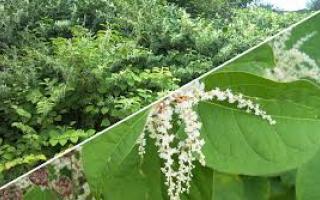Unfortunately harmful weeds and invasive plants such as Himalayan Balsam and Japanese Knotweed are present in and around West Hill.
Are these plants in your garden? Are you aware of your responsibilties?
It is important that residents can identify these plants and check if any can be found in their garden. If harmful weeds or invasive weeds are present it’s important to find out how to control them in the most appropriate way. These weeds/plants, plus any Green Waste with signs of Ash Dieback Disease, SHOULD NOT be put in the green waste bins.
Residents should be aware that they are responsible for preventing the spread of harmful weeds and invasive non-native plants onto a neighbour’s garden or surrounding areas.
There are penalties for failing to take preventative action
- You might have to follow the rules of an enforcement notice if you allow these harmful weeds to spread onto someone else’s property. You can also be prosecuted if you allow animals to suffer by eating these weeds.
- You could be fined up to £5,000 or be sent to prison for up to 2 years if you allow contaminated soil or plant material from any waste you transfer to spread into the wild.
For information please see https://www.gov.uk/guidance/prevent-the-spread-of-harmful-invasive-and-non-native-plants. This gives details on
- How to identify plants that need control
- How to prevent the spread of harmful weeds
- common ragwort
- spear thistle
- creeping or field thistle
- broad-leaved dock
- curled dock
- How to complain about harmful weeds
- How to prevent the spread of invasive, non-native plants
- Japanese knotweed
- giant hogweed
- Himalayan balsam
- rhododendron ponticum
- New Zealand pigmyweed (this is banned from sale)
- How to treat invasive non-native plants


